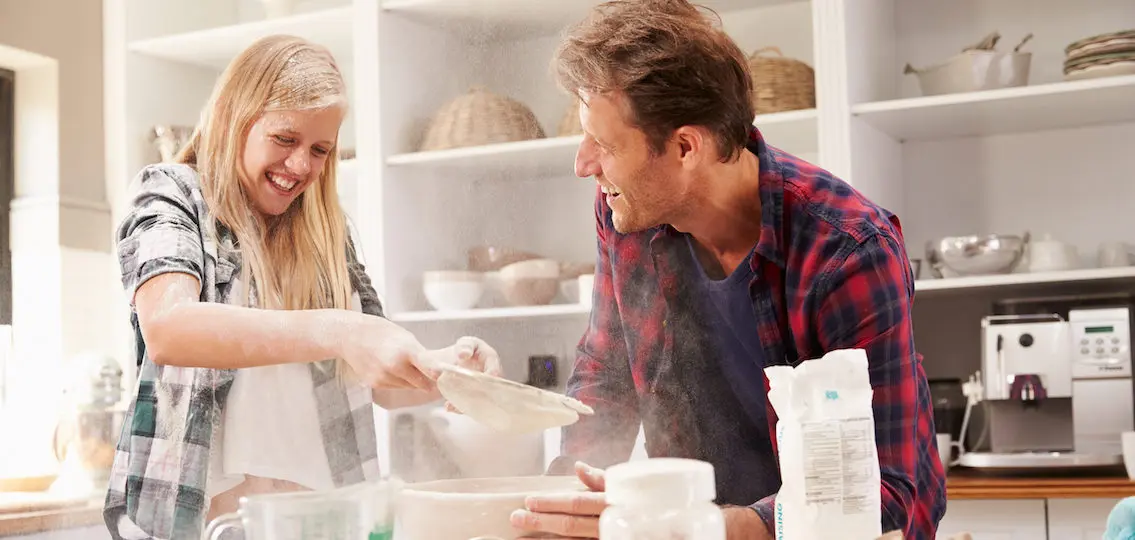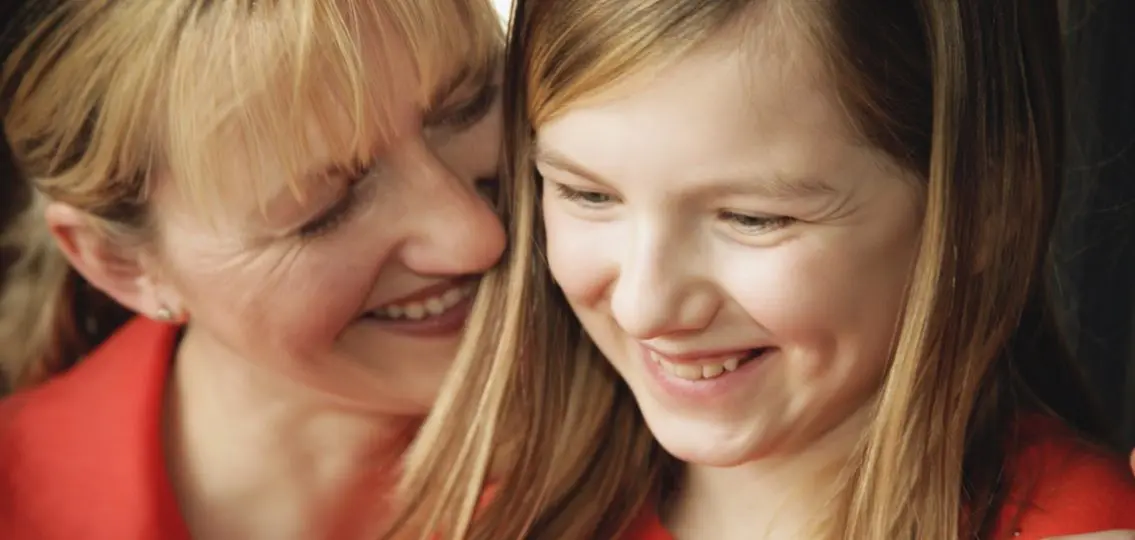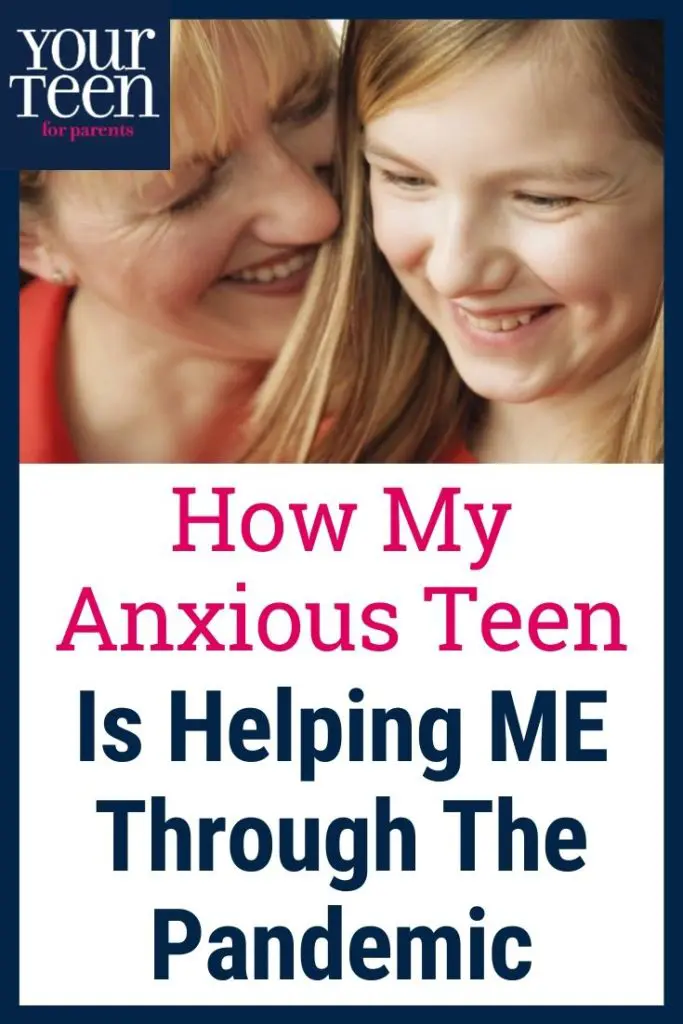I fell onto the couch beside my 13-year-old daughter. There was a tightness in my chest and I felt jittery, like there was too much adrenaline in my veins.

I knew that I wasn’t suffering from COVID-19, but my body was feeling the effects of being anxious about COVID-19.
Like so many others, I had suddenly been told to work from home. My two teens were home as well, their schools closed indefinitely. My days were spent trying to work via videoconference while thoughts and worries about the pandemic peppered my mind.
Do I have enough food if we are ordered to stay home?
Should I get more toilet paper?
Why aren’t my parents answering my texts?
Thank goodness my kids are teenagers and can entertain themselves. Wait, what WAS that loud crash?
As I sat on the couch next to my daughter, I did what I was probably not supposed to do: I told her about my anxiety.
“I can’t turn these thoughts off,“ I said. “Is this what it’s like to have anxiety?”
“Exactly,” she replied in a calm voice.
My teen was diagnosed with generalized anxiety in the fourth grade when she was 10 years old.
Now in the 7th grade, she manages her anxiety with biweekly therapy sessions and a host of cognitive behavior skills learned over the last three years.
Perhaps the most important thing she and her doctor have taught me about anxiety is that she can’t turn off her anxious thoughts.
They will always be there. Yet with therapy and practice my daughter has learned how to manage them.
And now here I was, unable to turn off my worries about the pandemic we are facing. So I asked her to share her hard-earned expertise to help me with my anxiety. My hope is that these strategies help not just me, but perhaps help others, as well, during these uneasy times.
Journal
“It helps get your worries and other emotions out,” my teen says of journaling. Writing releases your thoughts from inside your mind. Keeping a journal, whether daily or weekly, allows you to see and organize your thoughts, rather than try to make sense of them in your head.
My daughter recommends journaling in private and keeping what you write to yourself, making it a true safe space to share your thoughts.
Play an Instrument or Sing
“Music gets your mind to focus on something other than the worries,” my teen commented. She enjoys strumming the ukulele.
Indeed, we have all seen the videos of people in quarantine in Italy, singing or playing instruments from their balconies. Doing that boosts their mood and allows time away from their worries.
It doesn’t matter if you are good at making music, either. For my daughter, playing and singing means joyful self-expression rather than perfect performance. She has never been interested in posting her songs online, rather she sings for pure pleasure.
Exercise
Exercise almost always makes my daughter feel physically better and less anxious.
It can be any kind of exercise, too. My daughter likes ice hockey, which is fast, skilled, and physical. When her team’s playoffs got canceled due to the virus, though, she turned to yoga. She has bookmarked several of her favorite YouTube videos and says the feel-good flow makes her more relaxed and calm.
Ignore it
“Honestly, Mom, I’ve gotten really good at ignoring my anxiety,” my daughter relayed.
And as I thought of her journey with anxiety, I’ve realized that she’s right. She ignores her anxious thoughts when she plays her ukulele. Or when she sings. She doesn’t pay any attention to those thoughts when she loses herself to exercise.
And for me? The best way I can ignore my coronavirus anxiety is to limit how much TV I watch and how much time I spend looking at my phone and computer. Instead, I can go for a walk. Or sing (badly) to my favorite 80s songs. I should definitely snuggle on the couch more with my teens while we watch a silly show.

“You know, I feel better just talking to you,” I told my daughter as I hugged her. “I think I’ll go for a long walk now.”
“Good job, Mom,” she said and smiled. “Good job.”





